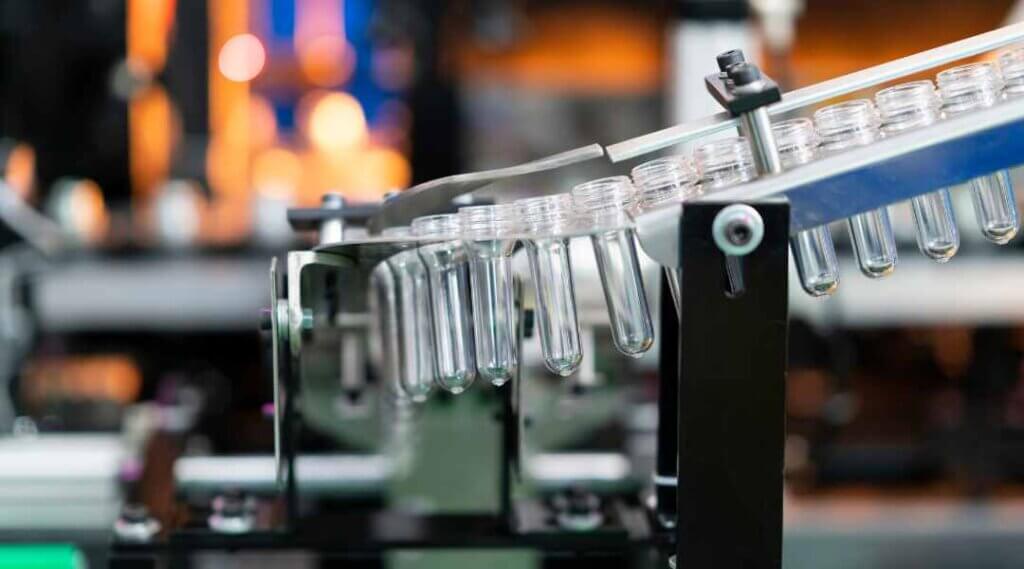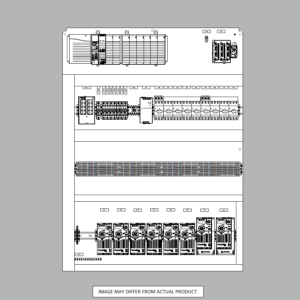The Chemical Manufacturing Industry: A Global Powerhouse
The chemical manufacturing industry stands as a cornerstone of modern civilization, powering innovation across sectors and shaping the world we live in. From the materials that build our cities to the medicines that keep us healthy, chemical manufacturers play a pivotal role in driving progress and addressing global challenges.
What is Chemical Manufacturing?
Chemical manufacturing involves the transformation of raw materials into a vast array of products that touch nearly every aspect of our lives. This complex industry relies on sophisticated processes to create everything from basic chemicals to highly specialized compounds.
At its core, chemical manufacturing encompasses several key processes:
- Synthesis: Combining different elements or compounds to create new substances
- Separation: Isolating specific chemicals from mixtures
- Purification: Removing impurities to achieve desired levels of purity
- Formulation: Blending chemicals to create specific products
The industry produces three main categories of chemicals:
- Basic chemicals: High-volume, low-cost materials like ethylene and chlorine
- Specialty chemicals: Lower-volume, higher-value products tailored for specific applications
- Consumer chemicals: Everyday products like soaps, detergents, and cosmetics
Chemical manufacturing’s reach extends far beyond what meets the eye. It’s the invisible force behind countless industries:
- Agriculture: Fertilizers and crop protection chemicals
- Pharmaceuticals: Active ingredients for medications
- Automotive: Lightweight materials and coatings
- Construction: Insulation, adhesives, and sealants
- Electronics: Silicon wafers and conductive materials
This pervasive influence underscores the industry’s critical importance to global economic growth and technological advancement.
Key Players in the Chemical Manufacturing World
Industry Giants
The chemical manufacturing landscape is dominated by several multinational corporations that have shaped the industry for decades. Let’s take a closer look at some of these powerhouses:
- Dow Chemical
- Headquarters: Midland, Michigan, USA
- Key products: Plastics, chemicals, and agricultural solutions
- Recent developments: Merger with DuPont in 2017, followed by a split into three separate companies in 2019
- BASF
- Headquarters: Ludwigshafen, Germany
- Key products: Chemicals, plastics, performance products, and crop protection
- Recent developments: Acquisition of significant parts of Bayer’s seed and non-selective herbicide businesses
- DuPont
- Headquarters: Wilmington, Delaware, USA
- Key products: Specialty materials, electronics, imaging, and biotechnology
- Recent developments: Merger with Dow Chemical and subsequent split into independent companies
- LyondellBasell
- Headquarters: Rotterdam, Netherlands and Houston, Texas, USA
- Key products: Plastics, chemicals, and refining technologies
- Recent developments: Expansion of recycling initiatives and sustainable product offerings
- Saudi Aramco
- Headquarters: Dhahran, Saudi Arabia
- Key products: Petrochemicals, in addition to its primary focus on oil and gas
- Recent developments: Acquisition of a 70% stake in SABIC, enhancing its chemical manufacturing capabilities
- SABIC
- Headquarters: Riyadh, Saudi Arabia
- Key products: Petrochemicals, specialty chemicals, and industrial polymers
- Recent developments: Majority acquisition by Saudi Aramco, strengthening its position in the global market
- Ineos
- Headquarters: London, UK
- Key products: Petrochemicals, specialty chemicals, and oil products
- Recent developments: Expansion into automotive sector with acquisition of Daimler’s Smart car factory
These industry giants have weathered numerous challenges and continue to adapt to changing market dynamics. Their ability to innovate, scale operations, and navigate complex global supply chains sets them apart in this competitive landscape.
Emerging Players
While established companies dominate the industry, several emerging players are making their mark:
- Corteva
- Focus: Agricultural chemicals and seeds
- Growth potential: Leveraging advanced R&D capabilities to develop sustainable crop protection solutions
- Sasol
- Focus: Integrated energy and chemical company
- Growth potential: Expansion of specialty chemical portfolio and focus on low-carbon technologies
- Sanofi
- Focus: Pharmaceuticals with a growing presence in specialty chemicals
- Growth potential: Developing innovative materials for drug delivery and medical devices
These companies are carving out niches in high-growth segments of the chemical industry, often focusing on sustainability and advanced technologies to differentiate themselves from larger competitors.
Chemical Manufacturing: Trends and Challenges
Economic and Geopolitical Impacts
The Russo-Ukrainian War and Energy Disruptions
The conflict between Russia and Ukraine has sent shockwaves through the chemical manufacturing industry, particularly in Europe. Key impacts include:
- Skyrocketing natural gas prices, a crucial feedstock for many chemical processes
- Disrupted supply chains, forcing companies to seek alternative raw material sources
- Sanctions on Russian companies, reshaping global trade flows in the chemical sector
Chemical manufacturers have responded by:
- Diversifying energy sources and increasing focus on renewable alternatives
- Relocating production to regions with more stable energy supplies
- Developing more energy-efficient processes to mitigate cost increases
COVID-19 Pandemic Effects
The global pandemic reshaped the chemical industry in unprecedented ways:
- Supply chain disruptions led to shortages of key raw materials and finished products
- Demand fluctuations caused rapid shifts in production priorities
- Increased focus on domestic production capabilities to reduce reliance on global supply chains
However, the pandemic also spurred innovation:
- Rapid development of new sanitizers and disinfectants
- Acceleration of digital transformation initiatives to enable remote operations
- Increased production of materials for personal protective equipment (PPE)
Sustainability and Environmental Concerns
The Push for Greener Chemistry
Sustainability has moved from a buzzword to a core business imperative in chemical manufacturing. Key initiatives include:
- Reducing greenhouse gas emissions through process optimization and renewable energy adoption
- Developing bio-based chemicals and materials to reduce reliance on fossil fuels
- Implementing circular economy principles to minimize waste and maximize resource efficiency
Leading companies are setting ambitious targets:
- BASF aims to achieve net-zero emissions by 2050
- Dow Chemical is working to collect, reuse, or recycle 1 million metric tons of plastic by 2030
Regulatory Landscape
Environmental regulations continue to evolve, pushing the industry towards more sustainable practices:
- Stricter emissions standards are driving investment in cleaner technologies
- Extended producer responsibility laws are encouraging companies to consider the entire lifecycle of their products
- Chemical safety regulations, like the EU’s REACH program, are promoting the development of safer alternatives to harmful substances
Balancing these regulatory requirements with economic viability remains a key challenge for the industry.
Technological Advancements
Digital Transformation and Industry 4.0
The chemical industry is embracing digital technologies to drive efficiency and innovation:
- Advanced analytics and machine learning are optimizing production processes and predicting maintenance needs
- Internet of Things (IoT) sensors are enabling real-time monitoring of plant operations
- Digital twins are allowing companies to simulate and optimize entire production facilities virtually
These technologies are revolutionizing the industry by:
- Improving safety through predictive maintenance and remote operations
- Enhancing quality control through data-driven process optimization
- Reducing costs and improving resource efficiency
Materials Science Innovations
Breakthroughs in materials science are opening up new possibilities for chemical manufacturers:
- Development of advanced polymers with unique properties for aerospace and automotive applications
- Creation of new catalysts to enable more efficient and selective chemical reactions
- Exploration of nanomaterials for applications in electronics, energy storage, and medicine
3D printing is also making waves in the industry:
- Enabling rapid prototyping of new chemical formulations
- Creating opportunities for on-demand, customized chemical production
- Driving innovation in materials design for additive manufacturing
The Future of Chemical Manufacturing
Market Outlook and Growth Projections
The chemical manufacturing industry is poised for continued growth, driven by several key factors:
- Growing global population and urbanization increasing demand for chemical products
- Rapid industrialization in emerging economies fueling consumption of basic and specialty chemicals
- Technological advancements creating new markets for advanced materials
Regional variations in growth are expected:
- Asia-Pacific region, particularly China and India, likely to see the fastest growth
- North America and Europe focusing on high-value specialty chemicals and sustainable solutions
Potential risks to this growth outlook include:
- Ongoing geopolitical tensions disrupting global trade
- Economic uncertainties stemming from inflationary pressures and potential recessions
- Regulatory challenges related to environmental and safety concerns
Opportunities and Challenges Ahead
Addressing Climate Change and Resource Scarcity
Chemical manufacturers are uniquely positioned to tackle some of the world’s most pressing environmental challenges:
- Developing more efficient and sustainable production processes
- Creating materials for renewable energy technologies, like solar panels and batteries
- Innovating in areas like carbon capture and utilization
Collaboration across industries will be crucial:
- Partnering with automotive companies to develop lightweight materials for electric vehicles
- Working with the construction industry to create more energy-efficient building materials
- Collaborating with the agriculture sector to develop sustainable fertilizers and pest control solutions
Navigating Geopolitical Tensions and Supply Chain Risks
To build resilience in an uncertain world, chemical companies are:
- Diversifying raw material sources to reduce dependence on any single region
- Investing in domestic production capabilities to mitigate supply chain disruptions
- Developing more flexible manufacturing processes to adapt to changing market conditions
Adapting to evolving trade policies and sanctions will require:
- Staying informed about geopolitical developments and their potential impacts
- Building strong relationships with government stakeholders
- Developing contingency plans for various geopolitical scenarios
Conclusion
The chemical manufacturing industry stands at a crossroads, facing both unprecedented challenges and exciting opportunities. As we’ve explored, the sector is grappling with geopolitical tensions, environmental pressures, and technological disruptions. Yet, it’s precisely these challenges that are driving innovation and pushing the industry towards a more sustainable and resilient future.
The companies that will thrive in this new era of chemical manufacturing are those that can:
- Embrace sustainability as a core business strategy
- Leverage digital technologies to drive efficiency and innovation
- Adapt quickly to changing market conditions and regulatory requirements
- Collaborate across industries to solve global challenges
As we look to the future, the chemical manufacturing industry’s potential to contribute to a more sustainable and prosperous world has never been greater. From developing materials for renewable energy to creating solutions for clean water and sustainable agriculture, chemical manufacturers will play a crucial role in shaping our collective future.
In this rapidly evolving landscape, staying ahead of the curve is essential. That’s where Automation Ready Panels come in. Our cutting-edge chemical process automation solutions are designed to help chemical manufacturers optimize their processes, improve efficiency, and adapt to the challenges of tomorrow. Whether you’re looking to implement advanced process control, enhance your data analytics capabilities, or streamline your operations, Automation Ready Panels has the expertise and technology to support your journey. Don’t let your competitors leave you behind – contact Automation Ready Panels today and take the first step towards a more efficient, sustainable, and profitable future in chemical manufacturing.
-
Large Process Automation: Panelview 5000, ControlLogix 5580
$24,073.00 Select options -
Small Process Automation: Panelview 5000, ControlLogix 5580
$20,321.00 Select options -
Small Process Automation: ControlLogix 5580, UPS Battery Backup, Cellular Modem
$18,999.00 Select options -
Advanced Automation: Panelview 5000, Safety CompactLogix 5380
$10,269.00 Select options









